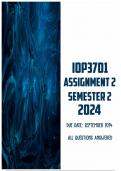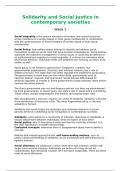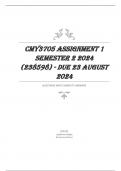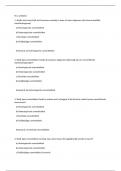Exam (elaborations)
IOP3701 Assignment 2 Semester 2 2024 | Due September 2024
- Institution
- University Of South Africa (Unisa)
IOP3701 Assignment 2 Semester 2 2024 | Due September 2024. All questions answered. The concept of unfair labour practice has been introduced into South Africa through the Labour Relations Act and it is argued that certain psychometric testing practices can be interpreted as falling under the d...
[Show more]







